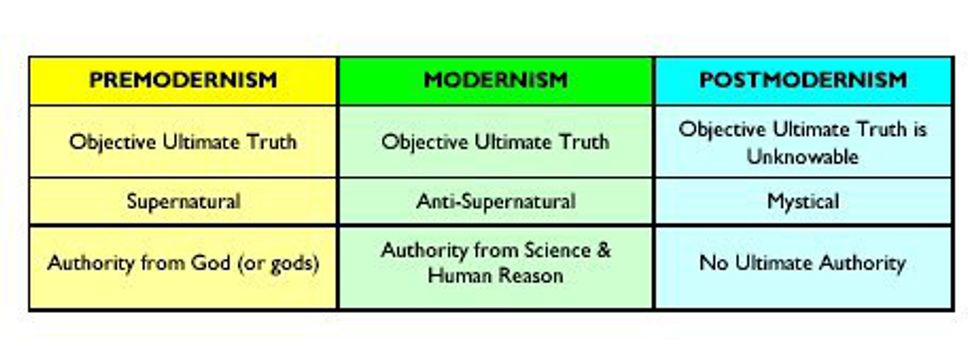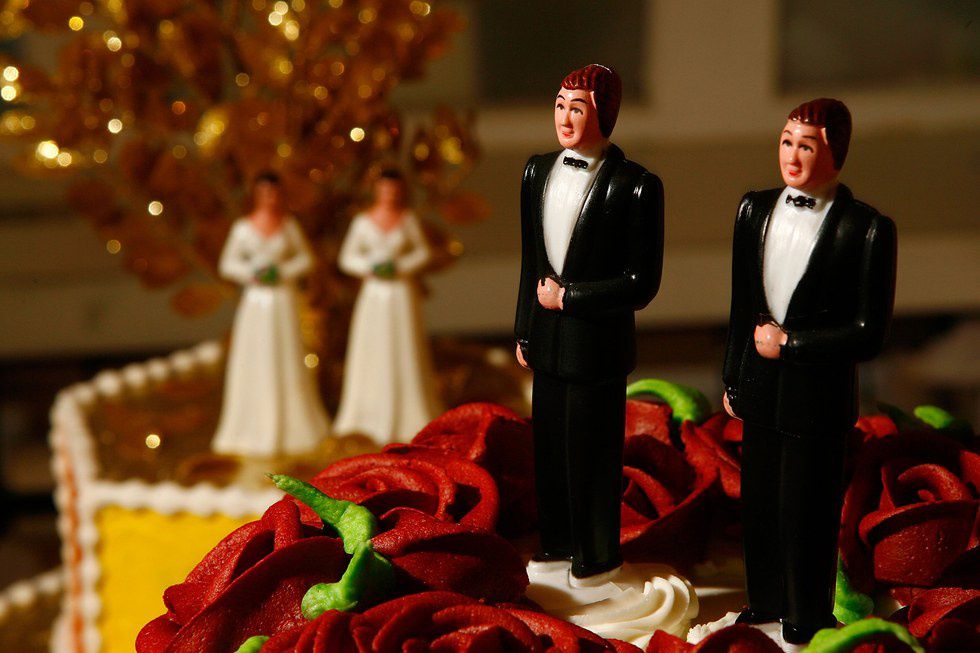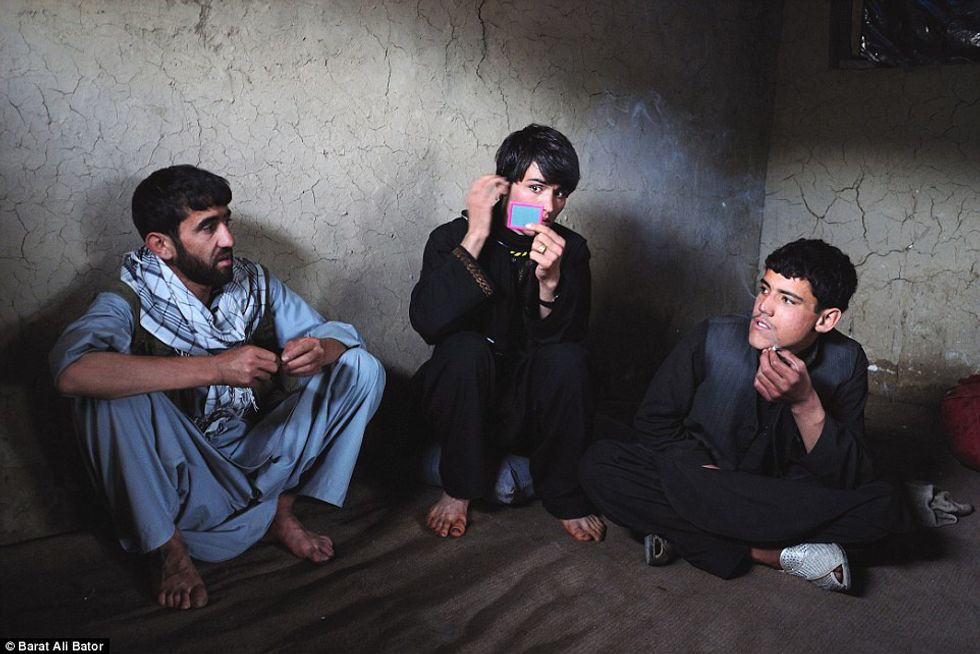This article is adapted from a recent term paper I have written for my Legal & Ethical issues course. It's a little unfortunate for me because this article is written much better than the paper I submitted for an actual grade.
We are taught in the Marriage and Family Therapy graduate program to respect and be aware of the differing cultures, values, sexualities, and religions of clients if they come to us for help. Additionally, we are taught to consider all perspectives of the family members as equal and to treat each of their subjective experiences as truth. As these individual subjective experiences interact with one another, they create a family system. The family system is to be treated as an organism unto itself from the systems perspective. This is the basis for much of our thinking in the Marriage and Family therapy program. Even prior to entering this program, I began to understand the subjective nature of human interaction and experience, but I had no idea the implications of such a perspective. I think that if our goal is to effectively treat a diverse array of clients, that this is an excellent approach in the therapy room. Many would say that operating in this manner even outside of the therapy room is the cutting edge of progressive and intelligent thinking. Many nonprofessionals would interpret this worldview simply as “live and let live” in their daily life but it is so much more than that. This type of thinking pushes back at the idea of an objective reality that governs all. This chips away at the legitimacy of broad concepts such as “good and evil” or “natural and unnatural”. This is useful in many contexts, such as the therapy room, but now that such views are being embraced in the larger societal sphere, we are seeing many unintended consequences. This approach that there is no objective truth and that every person’s reality is just as valid as the next is rooted more specifically in relativism, which is a type of postmodern thinking. Much of the activism and social theories we are seeing right now is based on postmodern systems thinking: It is not just individual men that are oppressing women; it is the result of a system called the Patriarchy. It is not just individual white people that are racist towards black people; it is a system of White Supremacy that was created by colonialist Western societies. Intersectionality attempts to tie all of these individual systems together in a neat package... a system of systems. Keep in mind, these ideas are not an undisputed truth, they are social theories. All of these ideas are indeed heavily disputed.
If I am to move forward with my thinking as an academic, I have to understand the limits of this postmodern thinking, where it is most useful, and what the ethical implications might be. The scientific method has always hinted at the difficulty of understanding reality, and I assumed that the scientific method was the cure. Now I find that even the modernist positivist approach is vulnerable to postmodernist critique. One such criticism is that the scientific method is merely a human construct for understanding a reality that is deeply biased towards a Western perspective. I do not buy into this particular critique, but it is an example of the many ways postmodernism is used to criticize long-established ideas, and how hard it can be to debate against an approach that dismisses the notion of an objective reality. Postmodernist thinking has begun having an influence on how we approach law and ethics, and while solving some problems, I believe it creates new ones.
My country, the United States of America, was founded on the philosophy of freedom of religion, and the founders even went so far as to put it in the first amendment of our constitution… in the very first sentence. “Congress shall make no law respecting an establishment of religion, or prohibiting the free exercise thereof…” In our modern day, the clashing of traditional religious values and modern progressive values occurs more and more. There are many examples, such as the Burwell v. Hobby Lobby ruling. The court ruled “closely held for-profit corporations run on religious principles” be exempt from laws to which its owner religiously objects. In this case, the company did not want to provide morning after pills to employees due to the owner’s religious beliefs. However, after pointing out that the court, with this ruling, had just extended religious freedom to the “commercial, profit-making world,” Justice Ginsburg had this to say in her dissent: “Would the exemption the Court holds RFRA demands for employers with religiously grounded objections to the use of certain contraceptives extend to employers with religiously grounded objections to blood transfusions (Jehovah’s Witnesses); antidepressants (Scientologists); medications derived from pigs, including anesthesia, intravenous fluids, and pills coated with gelatin (certain Muslims, Jews, and Hindus); and vaccinations (Christian Scientists, among others)?” Justice Ginsburg no doubt sees the legal and moral issues that arise from treating subjective religious beliefs just as legitimately as a heavily scrutinized scientific theory. Many Christians saw this particular court case as an attack on their religious freedom that was easily avoidable. However, many religious expressions that Christians participate in are often characterized as an attack against oppressed groups.
The creation of the Civil Rights Act of 1964 was the beginning of the end for discriminatory acts in the private business world. It outlawed discrimination based on race, color, religion, sex or national origin in any facility that provides public accommodations. Noticeably, it left off sexual orientation as an applicable factor for discrimination, and many states have since added it accordingly. Colorado created the Colorado Anti-Discrimination Act, which extends discrimination protections to members of the LGBT community. Colorado is also the home of Jack Phillips, who owns “Masterpiece Cakeshop,” a bakery who refused to make a wedding cake for an LGBT couple. “Charlie Craig and David Mullins visited Masterpiece Cakeshop in Lakewood and requested a cake to celebrate their planned wedding… Masterpiece owner Jack Phillips declined the couple’s request, telling them he didn’t create wedding cakes for same-sex weddings because of his religious beliefs.” There aren’t many options for the court with this case… either force the baker to provide a service against his will and thus violate his deeply held religious beliefs, or allow the baker to discriminate against customers whose lifestyle he disagrees with. At this point, it becomes a question of who is harmed most. Allowing the baker to simply refuse customers he didn’t want to serve might be seen as the simplest solution, however, this approach would arguably cause more harm if most or all businesses within the area take the same discriminatory stance, especially so if those businesses provide a service that is necessary for the residents within that area to survive, such as a grocery store. This was part of the problem with Jim Crow era laws. Another part is that this type of discrimination dehumanizes those discriminated against. The harms of discrimination are argued by modern-day activists to cause actual bodily harm in the form of stress, which builds up cortisol levels in the body. This is the basis for the argument that “hate speech is violence”. Activists now employ this argument regularly to advocate for censorship against any speech that they deem hateful.
Conversely, we must also consider the harm that it causes the baker to violate his sincerely held religious beliefs against his will. If he sincerely believes that his God will sentence him to eternal damnation for providing services for a homosexual couple because it implicitly supports a pairing that goes against God’s wishes, who are we to say that his subjective experience is false? We must also consider the stress that this might cause him, because if he truly believes in it, then that is his reality. The stress he would feel after being forced to choose between breaking the law of man and upholding his spiritual law must be immense. As mentioned previously, stress has real damaging effects on the body, so inflicting this type of stress on him could be argued to cause direct bodily harm. Further, we must consider the harm that the endless torture he would be subjected to in hell for all eternity would inflict on him if he were forced against his will to provide services for these homosexual couples. If we are to take the postmodern systems approach that all subjective experiences are valid, then we must accept these views as valid. In order to preserve the baker’s freedom of religion, and to prevent the harm caused by stress and eternal damnation, we must accept that the baker is able to discriminate against LGBT customers. Both the gay couple and the baker have a good legal case if we analyze who is more harmed from a purely subjective perspective but I would have to say that eternal damnation is as harmful as one could ever get. If we are ruling based on harm, I would have to rule in favor for the Christian baker based on these subjective criteria. This is an interesting way that postmodern thinking can be utilized against oppressed groups. Unfortunately, this ethical dilemma of religious freedom and postmodern thinking is not restricted just to baked goods.
Here in my home state of Louisiana, it was recently ruled that members of clergy no longer are required by law to report abuse, sexual or otherwise, from confessions. “The ruling came in an ongoing 2009 lawsuit against Roman Catholic authorities by parents who say their daughter, now an adult, was sexually abused by a parishioner at an Assumption Parish church.” I personally find this reprehensible, especially in light of all the sexual abuse that was found to be occurring within the Catholic Church, which was also systematically covered up by the higher ups within the church hierarchy. However, if we are considering this from a postmodern perspective, perhaps the priests that engage in this type of behavior are merely acting as agents of God? Perhaps they are simply fulfilling God’s wishes here on Earth? I should not jump to conclusions, because of course—I cannot truly understand their subjective experience. There hasn’t been a case that I’m aware of where a Catholic priest has attempted to claim that their sexual assault of children was ordained by God, thankfully. However, if they were to do so, from a relativistic perspective, their subjective experience must be considered just as valid as any other. Pedophilia could just be considered another sexual identity and all identities are human constructs that are as valid as any other. While I say these things with tongue firmly in cheek, many of these are real arguments that people employ, and it is actually true that there are some religions and cultures that engage in such practices openly.
“In his last phone call home, Lance Cpl. Gregory Buckley Jr. told his father what was troubling him: From his bunk in southern Afghanistan, he could hear Afghan police officers sexually abusing boys they had brought to the base. “At night we can hear them screaming, but we’re not allowed to do anything about it,” the Marine’s father, Gregory Buckley Sr., recalled his son telling him before he was shot to death at the base in 2012. He urged his son to tell his superiors. “My son said that his officers told him to look the other way because it’s their culture.” Another soldier finally had enough of looking the other way and eventually beat up an Afghan militia commander. The reason? He had a boy chained to his bed as a sex slave. The Army higher ups are telling soldiers to ignore these behaviors, citing cultural relativism as a justification. It may go against American societal norms, but there in Afghanistan, that is their culture. They even have a name for it… “bacha bazi”, which literally means, “boy play”. Almost universally, we would not hesitate to help an innocent child who is being raped and treated as a slave, but with cultural relativism, we are told to hesitate and consider the rapist’s cultural perspective. A very postmodern approach to ethics, indeed.
It seems clear that there are some dangers to adopting relativist and constructivist approaches, both being examples of postmodern thinking. While the check on our biases that postmodern approaches offer is invaluable, applying this perspective widely to society comes with its own set of baggage, including the field of therapy. In Section A.11.b. of the American Counseling Association’s code of ethics, it says, “Counselors refrain from referring prospective and current clients based solely on the counselor’s personally held values, attitudes, beliefs, and behaviors. Counselors respect the diversity of clients and seek training in areas in which they are at risk of imposing their values onto clients, especially when the counselor’s values are inconsistent with the client’s goals or are discriminatory in nature.” However, counselors who also happen to be religious have had some success justifying their religious beliefs to refer out clients whose lifestyles they disagree with, as in the case of Julea Ward. “Julea Ward was dismissed from a counseling program at Eastern Michigan University in 2009 after she refused to counsel a gay student based on her Christian religious beliefs” She’s not alone in her beliefs, “Tennessee Gov. Bill Haslam has signed legislation that allows mental health counselors and therapists to refuse to treat patients based on religious objections or personal beliefs.” This legislation no doubt effectively legalizes discrimination against clients whose values or identities we disagree with, going against the very principles of the codes of ethics that we are taught to uphold as therapists. The Tennessee legislation attempts to address the problem of causing harm to a vulnerable client with language that says it shall not apply to a counselor or therapist when an individual seeking or undergoing counseling is in imminent danger of harming themselves or others. The bill also says that the counselor must coordinate a referral to another counselor who will provide the client services. I suspect for the one who is discriminated against, these might seem like empty gestures from someone who claims to be a professional. The irony is that counselor is engaging in the same discriminatory manner that the client has likely endured and is possibly seeking help to deal with. It is unclear what the long-term effects will be from this legislation, but what is clear is the idea that the government is protecting subjective religious beliefs more and more. This type of government interference undermines the ethical foundations of the therapeutic profession. If this type of law is created by more states it will no doubt create a whole crop of “professionals” who are unbeholden to ethical guidelines. This could undermine the public confidence in our profession and dilute the effectiveness of therapy, as we are only as effective as the clients allow us to be.
The answer is clear to me, evidence-based approaches offer more useful, concrete ways of operating in a diverse, multi-cultural society. Not all values are equal, some are a great deal more useful to promoting social harmony. Not all identities are social constructs, some are based heavily in biology. Intelligence also varies, with some people born with a higher IQ and some with lower IQ. Some people are born more beautiful, and while beauty is indeed in the eye of the beholder, there are many physical traits that can almost universally be considered unattractive, regardless of the culture. Some religions are more violent than others in that the religious beliefs lead directly to acts of violence that have no other justification. All of these things can be measured and tested with the scientific method from a positivist approach. We can listen to and consider subjective experiences but we must operate and create laws as a society based on more concrete and objectively measurable evidence. If we are to accept that hate speech does indeed cause bodily harm, then if freedom of speech is to continue, we must also agree that we should be allowed to harm one another to some degree. Our therapy should indeed continue to value the postmodern systems approach as an effort to keep our bias in check. It is nice to kick back and ponder the various human constructs and relativistic perspectives that postmodernism has to offer; however, sometimes practicality is the best approach. While your subjective experience says you could indeed choose to wear your shoes on your head, practically speaking, you will have an easier time wearing them on your feet. Let us not prop up every subjective experience as gospel that dares not be questioned. We must start valuing once more the evidence-based approach in our social justice and progressive values. Sometimes a belief is just a belief, and more often than not, a cake is just a cake.





























